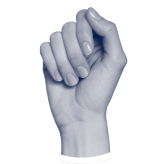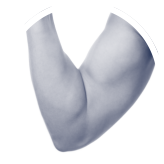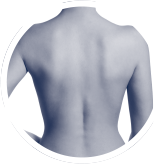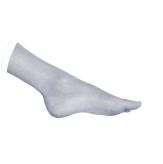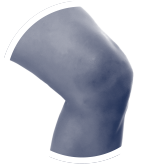
While each body region has its own clinical indicators, some general red flags should always raise concern:
- Unexplained weight loss
- Night pain that wakes the patient from sleep
- Non-mechanical pain (not relieved by rest, not provoked by movement)
- History of trauma with functional loss
- History of cancer, immunosuppression, or intravenous drug use
- Signs of systemic illness (fever, malaise, fatigue)
- Neurological symptoms (weakness, numbness, bladder or bowel dysfunction)
- Failure to improve after an appropriate trial of conservative treatment
These signs may suggest serious underlying pathology such as infection, malignancy, or significant structural damage; all of which warrant prompt referral, often through urgent or two-week wait pathways.
Spine and Neck Pain
Spinal pain is ubiquitous, but differentiating benign mechanical back or neck pain from serious conditions is crucial.
Key red flags in spinal presentations include:
Cauda Equina Syndrome
This is a surgical emergency and requires an urgent referral.
The signs to look for are:
- Saddle anaesthesia
- Bowel or bladder dysfunction
- Bilateral leg weakness or numbness
- Severe back pain with progressive neurological deficit
Any suspicion should lead to same-day MRI and spinal surgical referral.
Suspected Spinal Malignancy or Infection
Consider referring patients with:
- Unexplained weight loss
- Night pain unrelieved by rest
- Fever, chills, or immunosuppression
- History of cancer or tuberculosis
In these cases, an urgent MRI and referral to spinal surgery or oncology are appropriate.
Persistent or Progressive Radiculopathy
If symptoms have not responded to conservative management over 6-8 weeks, or if there is worsening motor deficit or significant functional limitation, a referral for MRI and specialist spinal opinion is warranted.
Please note that early surgical input can improve outcomes in cases of nerve compression.
Shoulder Pain
Shoulder complaints are frequently seen in general practice. Most are due to impingement, tendinopathy or rotator cuff pathology. However, certain features should prompt earlier imaging or referral:
Trauma with Suspected Rotator Cuff Tear
Acute shoulder trauma in patients over 40, followed by weakness in abduction or external rotation, should raise concern for a rotator cuff tear. Referral for ultrasound or MRI is recommended within 2-4 weeks to assess the extent of damage. Delay can lead to irreversible changes such as fatty degeneration or tendon retraction.
Frozen Shoulder Unresponsive to Treatment
If symptoms of frozen shoulder persist, despite 8-12 weeks of physiotherapy and steroid injection/Hydrodilatation, or if there is diagnostic uncertainty, referral for imaging and specialist input can be helpful. In many cases hydrodilatation can be very effective or in very severe cases, surgical release may be considered.
Glenohumeral Instability or Recurrent Dislocation
Recurrent shoulder dislocations, particularly in younger patients, may benefit from early surgical stabilisation. Referral to a shoulder surgeon is advised following a second dislocation or ongoing instability.
Elbow, Wrist and Hand
Upper limb pain below the shoulder is often managed conservatively, but consider referral for:
Nerve Compression Syndromes with Motor Deficit
Carpal tunnel syndrome and cubital tunnel syndrome can often be managed with splinting and steroid injections. However, if there is thenar wasting, weakness, or persistent numbness despite conservative treatment, nerve conduction studies and surgical referral are advised.
Locked Finger or Thumb (Trigger Finger)
Failure to respond to steroid injections or severe cases affecting hand function should be referred for surgical consideration.
Scaphoid Fracture or Non-Union
If snuffbox tenderness persists post-trauma and X-rays are normal, MRI or CT may be indicated to exclude occult fracture. Referral to a hand specialist is necessary if there is concern about non-union.
Hip and Groin Pain
Hip pain is often referred from the spine, but true joint pathology should be considered in:
Young Adults with Mechanical Hip Pain
Femoroacetabular impingement (FAI) or labral tears often affect active adults and athletes. Pain with flexion and rotation, or groin clicking, warrants referral to a hip arthroscopy specialist. Early intervention can prevent joint degeneration.
Elderly with Acute Pain and Limited Weight Bearing
Always suspect a hip fractures in older patients with a fall and difficulty weight-bearing. If the X-ray is negative but suspicion remains high, an MRI should be requested urgently.
Knee Pain
Knee issues are very common, especially among active individuals. Consider referral in the following cases:
Mechanical Symptoms
Locking, catching or giving way suggests meniscal injury or loose body. These patients may benefit from MRI and possible arthroscopy.
Persistent Swelling or Effusion
Recurrent joint swelling may suggest inflammatory arthropathy or internal soft tissue damage such as a meniscal tear. Imaging is likely to be needed, followed by a rheumatology or orthopaedic referral.
Trauma with Instability
ACL injuries are common in sports. A patient reporting a ‘pop’ with immediate swelling, followed by instability, should be referred for imaging and possible surgical reconstruction, especially if returning to pivoting sports.
Foot and Ankle
While many foot and ankle problems resolve with rest and footwear modification, referral is needed for:
Persistent Achilles Pain or Suspected Rupture
Sudden calf pain with loss of push-off strength or a palpable gap should prompt urgent orthopaedic review. Chronic Achilles tendinopathy that fails physiotherapy may also require imaging or shockwave therapy.
Hallux Rigidus or Bunion with Functional Impairment
If symptoms interfere with mobility or footwear and are resistant to podiatry input, surgical consultation may be appropriate.
When Is Imaging Appropriate Before Referral?
While first-line X-rays can be helpful in many joint complaints (e.g. suspected arthritis, trauma), advanced imaging should be requested judiciously. In general:
- MRI is best for soft tissue evaluation (ligaments, tendons, cartilage).
- Ultrasound is excellent for dynamic assessment of superficial structures like the rotator cuff or Achilles tendon.
- CT is often used in complex fractures or bone tumours.
If imaging is likely to delay referral or change management very little (e.g. suspected frozen shoulder), it’s often better to refer and let the specialist guide imaging decisions.
Summary
Knowing when to refer is a crucial part of musculoskeletal care. While many MSK complaints can be effectively managed in primary care or with physiotherapy, red flags should never be ignored. Recognising the signs of serious pathology or structural damage allows for timely referral, accurate diagnosis, and optimal treatment – improving outcomes and minimising long-term disability.
At London Bridge Orthopaedics, our multidisciplinary team works closely with GPs, physiotherapists, and podiatrists to provide clear communication, rapid access to diagnostics, and patient-centred treatment plans. If you are unsure about a referral, we are always happy to advise.
If symptoms have not responded to conservative management over 6-8 weeks, or if there is worsening motor deficit or significant functional limitation, a referral for MRI and specialist spinal opinion is warranted.


